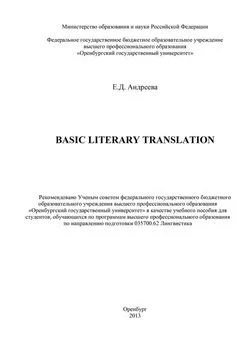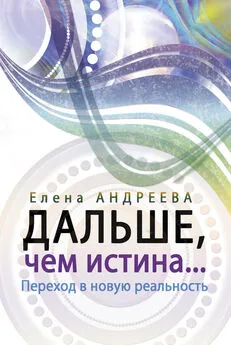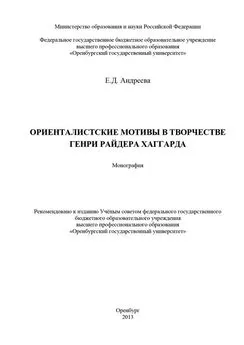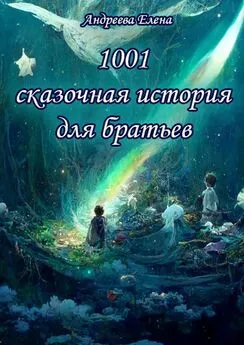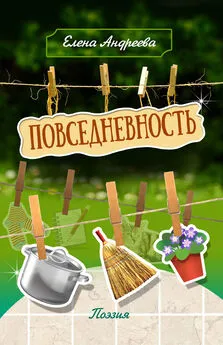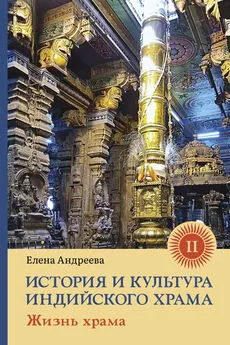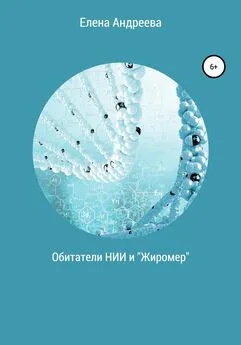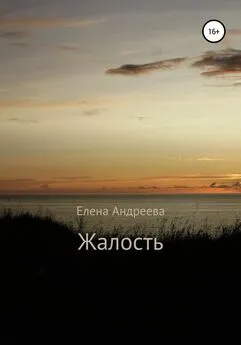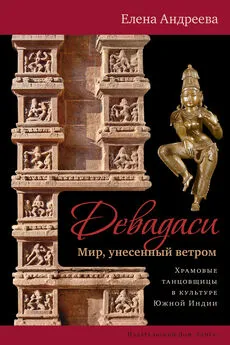Елена Андреева - Basic literary translation
- Название:Basic literary translation
- Автор:
- Жанр:
- Издательство:Литагент БИБКОМ
- Год:2013
- ISBN:нет данных
- Рейтинг:
- Избранное:Добавить в избранное
-
Отзывы:
-
Ваша оценка:
Елена Андреева - Basic literary translation краткое содержание
Basic literary translation - читать онлайн бесплатно ознакомительный отрывок
Интервал:
Закладка:
 omission / addition (extension).
omission / addition (extension).
Where the pink cliffs rose out of the ground there were often narrow tracks winding upwards [32].
Там, где утес вставал прямо из земли, часто тоненько убегала вверх тропинка [18].
Exercises
1 . Find in the given text the words used in metaphorical sense and write out of a dictionary all their meanings. Compose your own sentences using every word in direct and figurative meaning.
It was a bright, beautiful, warm day when our ship spread her canvass to the breeze, and sailed for the regions of the south. Oh, how my heart bounded with delight as I listened to the merry chorus of the sailors, while they hauled at the ropes and got in the anchor! The captain shouted – the men ran to obey – the noble ship bent over to the breeze, and the shore gradually faded from my view, while I stood looking on with a kind of feeling that the whole was a delightful dream.
The first thing that struck me as being different from anything I had yet seen during my short career on the sea, was the hoisting of the anchor on deck, and lashing it firmly down with ropes, as if we had now bid adieu to the land for ever, and would require its services no more.
"There, lass," cried a broad-shouldered jack-tar, giving the fluke of the anchor a hearty slap with his hand after the housing was completed – "there, lass, take a good nap now, for we shan't ask you to kiss the mud again for many a long day to come!"
And so it was. That anchor did not "kiss the mud" for many long days afterwards; and when at last it did, it was for the last time!
From “The Coral Island”, by R.M. Ballantyne2 . Find in the given text epithets and define their types (logical or figurative), their function and appropriateness of their usage in the text.
What a joyful thing it is to awaken, on a fresh glorious morning, and find the rising sun staring into your face with dazzling brilliancy! – to see the birds twittering in the bushes, and to hear the murmuring of a rill, or the soft hissing ripples as they fall upon the sea-shore! At any time and in any place such sights and sounds are most charming, but more especially are they so when one awakens to them, for the fist time, in a novel and romantic situation, with the soft sweet air of a tropical climate mingling with the fresh smell of the sea, and stirring the strange leaves that flutter overhead and around one, or ruffling the plumage of the stranger birds that fly inquiringly around, as if to demand what business we have to intrude uninvited on their domains. When I awoke on the morning after the shipwreck, I found myself in this most delightful condition; and, as I lay on my back upon my bed of leaves, gazing up through the branches of the cocoa-nut trees into the clear blue sky, and watched the few fleecy clouds that passed slowly across it, my heart expanded more and more with an exulting gladness, the like of which I had never felt before. While I meditated, my thoughts again turned to the great and kind Creator of this beautiful world, as they had done on the previous day, when I first beheld the sea and the coral reef, with the mighty waves dashing over it into the calm waters of the lagoon.
From “Lord of the Flies”, by W. Golding3 . Compare the original and its translation. Define means of translation used by the translator.

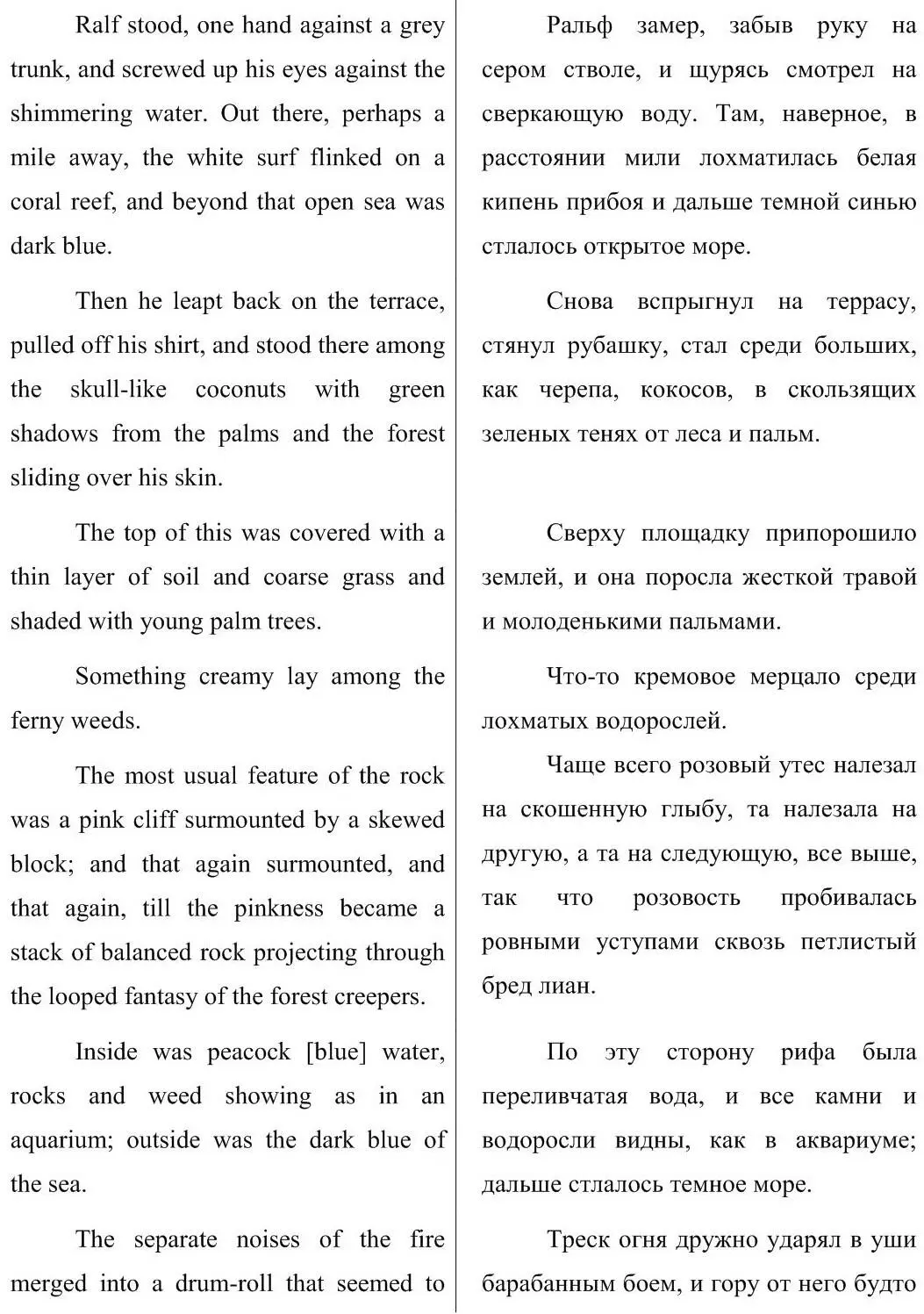
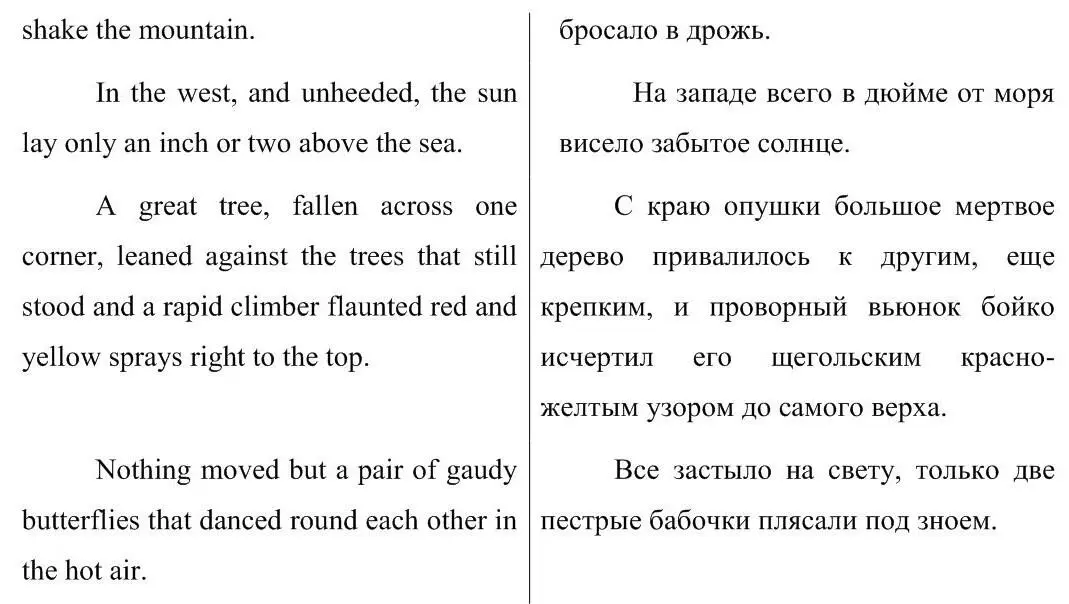 From “Lord of the Flies”, by W. Golding
From “Lord of the Flies”, by W. Golding
4 . Translate the following sentences paying attention to the epithets. Explain what means of translation you have used.
1. He was clambering heavily among the creepers and broken trunks when a bird, a vision of red and yellow, flashed upwards with a witch-like cry [32].
2. The ground beneath them was a bank covered with coarse grass, torn everywhere by the upheavals of fallen trees, scattered with decaying coconuts and palm saplings [32].
3. He undid the snake-clasp of his belt, lugged off his shorts and pants and stood there naked, looking at the dazzling beach and water [32].
4. But the island ran true to form and the incredible pool, which clearly was only invaded by the sea at high tide, was so deep at one end as to be dark green [32].
5. With openness came the sun; it dried the sweat that had soaked their clothes in the dark damp heat [32].
6. High over this end of the island, the shattered rocks lifted up their stacks and chimneys. This one, against which Jack leaned, moved with grating sound when they pushed [32].
7. Either the wandering breezes or perhaps the decline of the sun allowed a little coolness to lie under the trees [32].
8. At the sight of the flames and the irresistible course of fire, the boys broke into shrill, excited cheering [32].
9. The bottom part of the trickle, as though conscious of their gaze, thickened to a creamy blur which crept up to a feeble column [32].
10. With the fading of the light the riotous colours died and the heat and urgency cooled away [32].
11. There was a pool at the end of the river, a tiny mere dammed back by sand and full of white water-lilies and needle-like reeds [32].
12. Over the island the build-up of clouds continued. A steady current of heated air rose all day from the mountain and was thrust to ten thousand feet; revolving masses of gas piled up the static until the air was ready to explode [32].
13. Nothing prospered but the flies who blackened their lord and made the spilt guts look like a heap of glistening coal [32].
14. Further along the beach, beyond the little river and near a great stab of rock, a thin trickle of smoke was climbing into the sky [32].
15. Words could not express the dull pain of these things. He fell silent, while the vivid stars were spilt and danced all ways [32].
5 . Translate the following sentences paying attention to the epithets. Explain what means of translation you have used.
1. Когда он [фрегат] опустится вниз, по сторонам его вздымаются водяные стены [26].
2. «Крепкий ветер, жестокий ветер! – говорил по временам капитан, входя в каюту и танцуя в ней. – А вы это все сидите? Еще не приобрели морских ног» [26].
3. – Пойдемте, я вас отбуксирую! – сказал он и повел меня на шканцы. Опираясь на него, я вышел «на улицу» в тот самый момент, когда палуба как будто вырвалась из-под ног и скрылась, а перед глазами очутилась целая изумрудная гора, усыпанная голубыми волнами, с белыми, будто жемчужными, верхушками, блеснула и тотчас скрылась за борт [26].
4. В этом расположении я выбрался из каюты, в которой просидел полторы суток, неблагосклонно взглянул на океан и, пробираясь в общую каюту, мысленно поверял эпитеты, данные ему Байроном, Пушкиным, Бенедиктовым и другими – «угрюмый, мрачный, могучий», и Фаддеевым – «сердитый». «Соленый, скучный, безобразный и однообразный! – прибавил я к этому списку, сходя по трапу вниз, – заладил одно – и конца нет!» [26].
5. Вместо уродливых бугров с пеной и брызгами – крупная, но ровная зыбь [26].
6. Мне казалось, что я с этого утра только и начал путешествовать, что судьба нарочно послала нам грозные, тяжелые и скучные испытания, крепкий, семь дней без устали свирепствовавший холодный ветер и серое небо, чтоб живее тронуть мягкостью воздуха, теплым блеском солнца, нежным колоритом красок и всей этой гармонией волшебного острова <���…> [26].
7. На Мадере я чувствовал ту же свежесть и прохладу волжского воздуха, который пьешь, как чистейшую ключевую воду <���…> [26].
8. Внезапно развернувшаяся перед нами картина острова, жаркое солнце, яркий вид города, хотя чужие, но ласковые лица – все это было неожиданным, веселым, праздничным мгновением и влило живительную каплю в однообразный, долгий путь [26].
9. Это не слегка сверху окрашенная вода, а густая яхонтовая масса, одинаково синяя на солнце и в тени [26].
10. Сады их окаймляли дорогу тенистыми дубами, кустами алоэ, но всего более айвой, которая росла непроходимыми кустами, с желтыми фруктами [26].
11. Он очень мил; у него много природного юмора, и он мастерски владеет шуткой. Существо вечно поющее, хохочущее и рассказывающее, никогда никого не оскорбляющее и никем не оскорбляемое [26].
12. Индийский океан встретил нас еще хуже, нежели Атлантический: там дул хоть крепкий, но попутный ветер, а здесь и крепкий и противный, обратившийся в шторм, который на берегу называют бурей [26].
13. Белая бумажная кофта, вроде женских ночных кофт, и шаровары, черные, а более синие, у богатых атласные, потом бритая передняя часть головы и длинная до пят коса, природная или искусственная, отсутствие шляпы и присутствие веера, заменяющего ее, – вот их костюм [26].
14. Впрочем, простой народ, работающий на воздухе, носит плетеные из легкого тростника шляпы, конической формы, с преширокими полями [26].
15. В одном месте на лугу мы видели группу мужчин, женщин и детей, в ярких, режущих глаза, красных и синих костюмах: они собирали что-то с деревьев [26].
Читать дальшеИнтервал:
Закладка:
